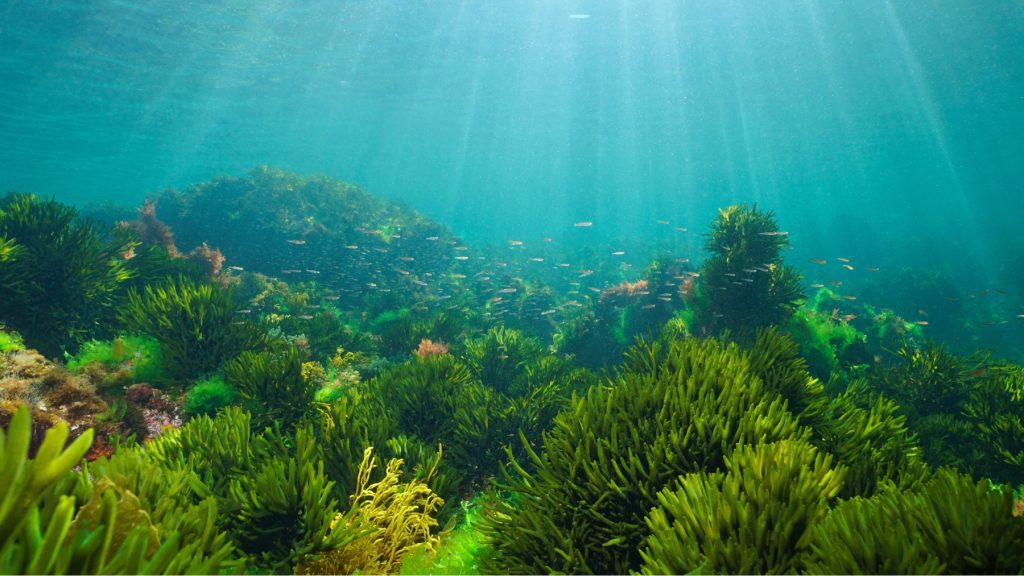
It earned a spot in Time’s Best Inventions of 2023; it is the one and only AlgaRay. Cleaning water bodies can cost tens of thousands of dollars meanwhile the process disrupts both fishing and tourism industries. AlgaRay is an aquatic robot project that depicts the alleviation of sargassum stress. The name behind AlgaRay is motivated by manta rays or the gentle giants of the water because they swipe through the ocean with open mouths to filter and eat algae.
An AlgaRay prototype is currently patrolling off the coasts of Antigua, co-designed by Seaweed Generation, a nonprofit organization dedicated to using the versatile plant to help mitigate and remove carbon emissions. The 9-foot-wide robot scoops up clumps of sargassum until its storage capacity is full, at which point the autonomous bot dives 200 meters below the surface.
The air pockets that make sargassum leaves buoyant are so compressed by the water pressure at this depth that it can no longer float. The seaweed sinks to the ocean floor after being released by AlgaRay. According to a new paper published by Seaweed Generation’s collaborators at the University of Exeter, the robot can repeat this process four to six times per hour. And, thanks to a combination of solar panels, lithium batteries, and navigational tools linked to Starlink’s satellite internet constellation, AlgaRay will “ultimately be able to work almost non-stop,” according to the University of Exeter.
Future iterations of the robot could eventually rival the massive size of manta rays. A nearly 33-foot-wide version is being developed to collect up to 16 metric tons of seaweed at a time—equivalent to approximately two metric tons of CO2. Fleets of AlgaRay robots could soon offer an efficient, creative way to remove CO2 from the atmosphere if deep-sea repositories are carefully monitored.
“The [Intergovernmental Panel on Climate Change] has been quite distinct that we need to be able to remove (not offset, remove) 10 billion [metric tons] of carbon a year from the atmosphere by 2050 to have a hope of avoiding utter catastrophe for all people and all earth life,” the authors Estridge and Taylor wrote. Knowing this, AlgaRay bots could be a valuable ally in achieving that goal. At the very least, some beaches will be less overrun with rotting seaweed each year.
Inside Telecom provides you with an extensive list of content covering all aspects of the tech industry. Keep an eye on our Tech sections to stay informed and up-to-date with our daily articles.